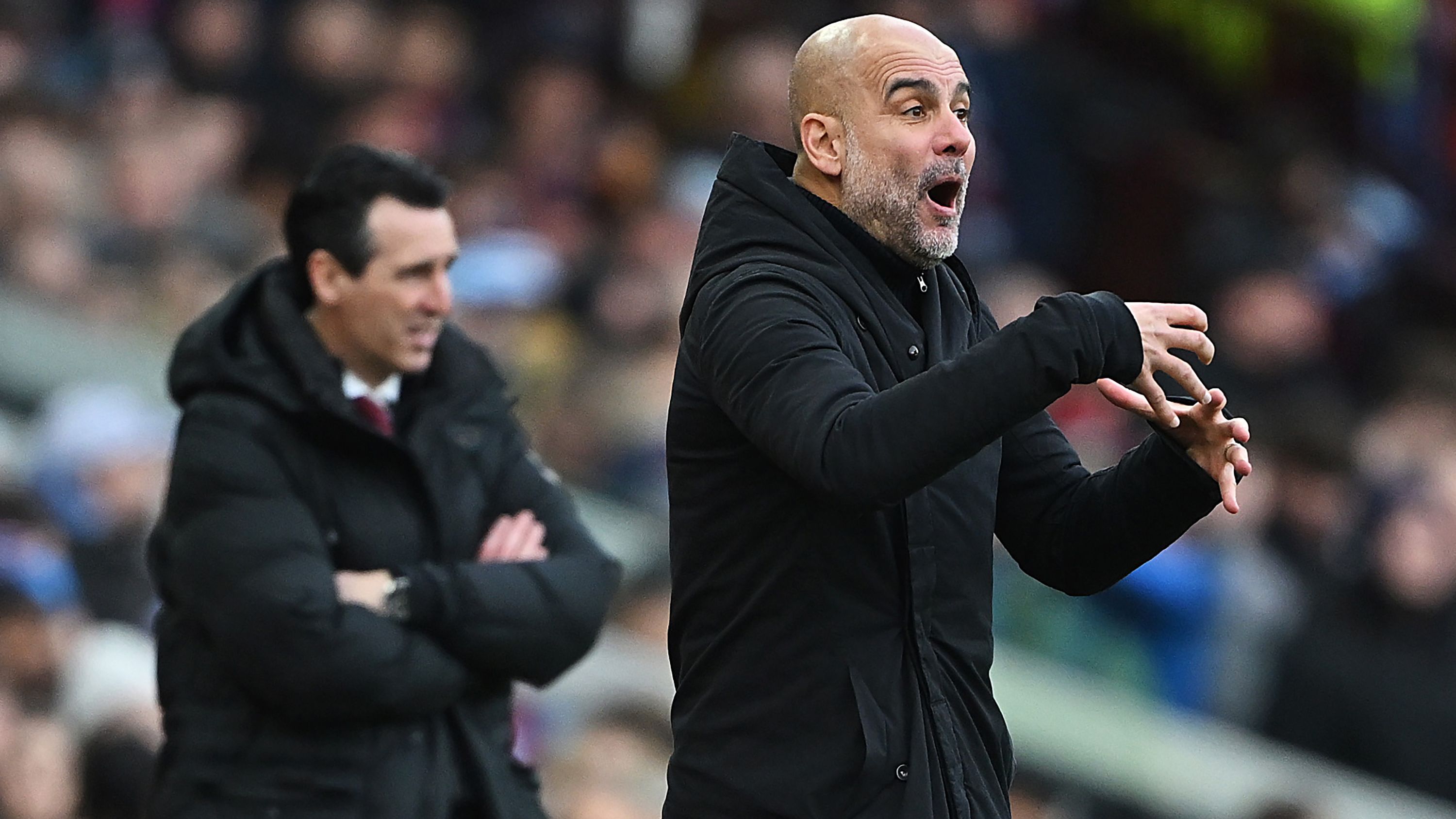 |
|
The recent Premier League match between Aston Villa and Manchester City showcased a stark contrast in team form and confidence. Aston Villa, under the astute management of Unai Emery, secured a decisive 2-1 victory against a struggling Manchester City side, exposing vulnerabilities within Pep Guardiola's team. Emery's post-match comments highlighted the significant difference in confidence levels between the two teams, attributing Villa's success to their ability to capitalize on City's evident lack of self-belief. This win further underscores the challenging season Manchester City is experiencing, extending their struggles well into the Christmas period. The match serves as a compelling case study in how a team's mental fortitude can significantly impact on-field performance, and how a well-prepared and confident opponent can exploit weaknesses in even the most highly skilled teams.
Manchester City, accustomed to dominance in the Premier League, have faced a series of unexpected setbacks this season. Their typically fluid and creative attacking play has seemed less incisive, and their usually resolute defense has appeared susceptible to errors. This vulnerability was clearly evident in the Aston Villa match, where individual mistakes and a lack of cohesion allowed Villa to create scoring opportunities and ultimately secure the win. The contrast to Aston Villa's performance was striking; Villa displayed a sense of collective purpose, strong teamwork, and a tactical approach that clearly targeted City's weaknesses. The victory is a testament to Emery's ability to strategize and motivate his team, even against a formidable opponent known for their tactical sophistication.
Emery's post-match analysis emphasized the psychological aspect of the game. He subtly but effectively pointed out that City's lack of confidence created opportunities for Aston Villa. This isn't merely about technical skill or tactical prowess; it highlights the importance of mental resilience and belief in football. A team that lacks confidence is more likely to make errors, hesitate in crucial moments, and ultimately underperform, regardless of their individual talent. In contrast, Villa’s performance showed the power of positive momentum and collective belief. Their tactical preparation clearly took into account City's current struggles, and they executed their game plan effectively, taking advantage of the mental fragility within the City ranks. The result sends a clear message to the rest of the Premier League: Manchester City, despite their talent, is currently vulnerable.
The implications of this result extend beyond the immediate standings. Manchester City's poor form casts a shadow on their title aspirations. While they still possess the talent to turn their season around, the loss to Aston Villa underscores the need for introspection and a renewed focus on regaining their mental strength. The upcoming fixtures will be crucial in determining whether they can overcome this slump or continue their struggles. For Aston Villa, the victory provides a significant boost of confidence and momentum, showing that they can compete at the highest level of the Premier League. This win, coupled with their overall improved performance throughout the season, indicates that Aston Villa is a force to be reckoned with in the coming months.
The Aston Villa versus Manchester City match serves as a compelling microcosm of the broader dynamics within elite football. It emphasizes the often-overlooked influence of psychology and confidence on team performance. While individual skill and tactical prowess remain essential components of success, the mental fortitude of a team can ultimately be the deciding factor in high-pressure matches. This match reinforces the importance of a team’s ability to not just execute a game plan technically but to also possess the self-belief and mental strength needed to capitalize on the weaknesses of their opponents, no matter how talented those opponents might be. The result is a reminder that in the highly competitive world of professional football, the mental game can be just as important, if not more so, than the physical one.
